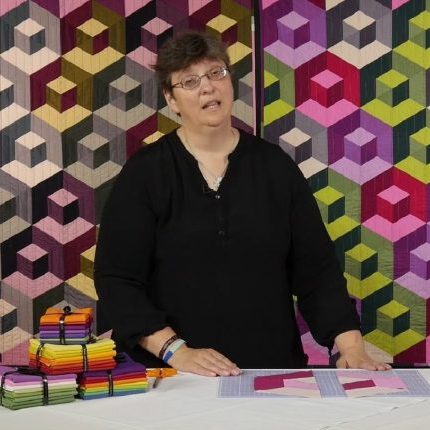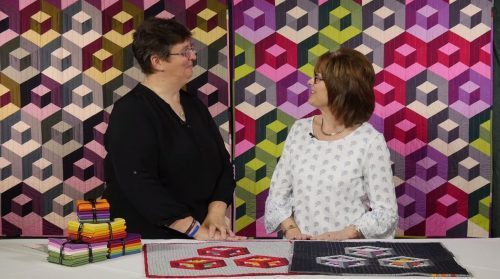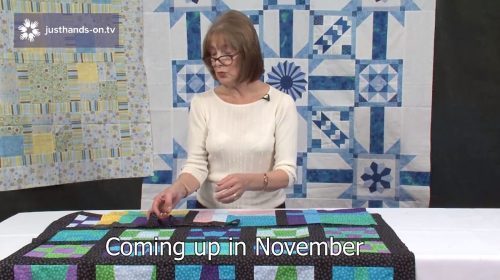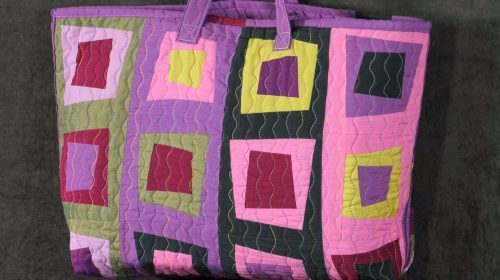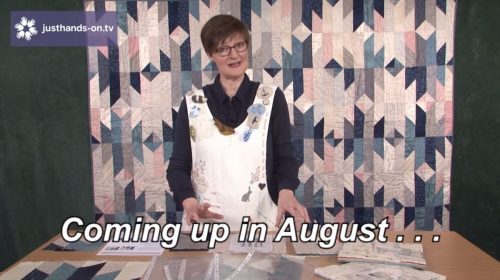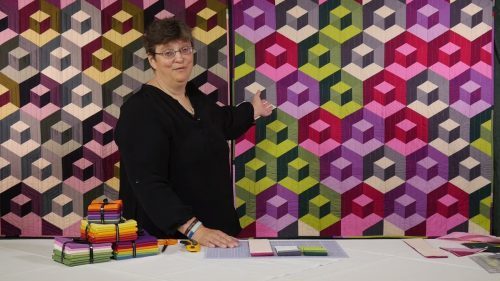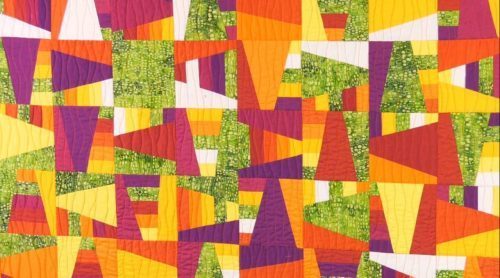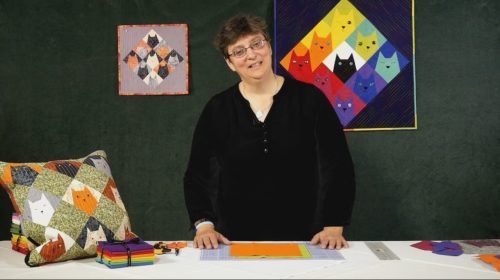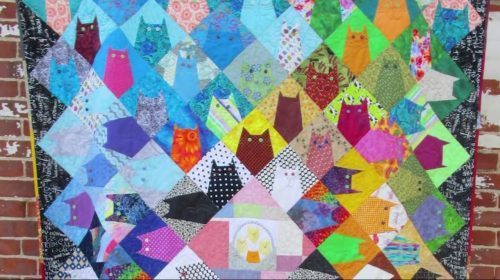About Helen
Helen can’t remember a time when she wasn’t making something. As a young child her greatest joy was the ‘useful box’ which lived in the cupboard under the stairs and was the repository for empty egg boxes, cereal packets and yogurt pots, all fantastic stuff to feed a creative mind.
When Helen was seven her Grandmother taught her to sew and opened her mind to a whole new avenue of creative expression. Helen designed and made her first full size cross-stitch sampler before she was nine, and made various garments for dolls and bears and eventually herself, creating patterns by the simple method of lying on the floor and drawing round herself, much to the amusement of her Mother & Grandmother – both accomplished dressmakers.
Helen worked in graphics, and then advertising, for ten years, until she and her partner had the opportunity to quit the London rat-race and move to Yorkshire to run the family’s marina business. During this time, Helen taught herself patchwork, quilting, beading, origami, marquetry, doll making and canvas work. She discovered that, not only does she love crafting and the challenge of learning something new, she also had a hitherto undiscovered competitive streak deep inside which prompted her to hone these new skills to the point where she regularly won awards in the handicrafts section of shows.
Fifteen years later, Helen decided to combine her experience of running a business with her enduring passion for crafting to start LITTLE PATCH POCKETS. Helen creates patchwork designs and writes patterns so you can make your own unique, lovely things. She also offers kits, classes and workshops where she teaches her designs.
Helen loves using three dimensional illusions in her work. According to Helen, “I love to create an illusion of three dimensions and many of my designs are based on this concept. I do occasionally use curved lines, but since my mind seems to work in straight lines I find lots of inspiration in architecture, engineering and even mathematical concepts. I like accurate piecing and often create my own foundation paper pieced blocks in order to achieve the precision I enjoy.”
Helen is an avid follower of the Modern Quilt Movement as well as a great believer that quilts are for using: “for your three-year-old to drag down the garden, for the dog to sleep on and to go in the washing machine.”
Signature Technique
Modern Quilting
Helen’s Top Tips
- Colour choice is key to 3D work. Always select three shades of the same colour, or light, medium and dark tones of the same colour.
- Auditioning fabrics is one of the most useful skills any patchwork artist can develop. A quilt needs contrast of tone, however subtle, to accentuate the design.
- Never use a fabric with a low thread count or a loose weave, however good the colour. Thinner fabrics do not handle well, will fray quickly and will not wear well in the finished quilt. It is worth investing in good fabrics.
- Many of the fabrics at the cheaper end of the market cover up this deficiency with excessive amounts of surface ink and stiffening treatments – the secret is to turn to the back and check.
- Always look for a fabric that is likely to shrink only minimally. Some shrinkage is to be expected, especially when combining fabrics from different manufacturers. Look on this as part of the charm of a washed quilt. However, cheap fabric with an open, loose weave will shrink hugely when washed, ruining your work.
Videos
Books and Patterns
Posts
How do I avoid having a birds nest on the back of my quilt?
A birds nest is that ravel of thead that often happens when you start quilting part way into a project and when you are making a quilt you need the back of it to be as beautiful as the front. An easy way to do this is to pull that bottom thread up through the work so that you have it under control and then you can knot it off later.
What do you do with the thread ends when you are finished quilting?
Well the threads can be knotted and then hidden in the wadding. You can see how by watching Knotting Off Your Threads and here is what one happy viewer had to say: I have just watched 'Knotting Off Your Threads' with Valerie and would like to say thank you for sharing such a great method. I was taking both threads to the back, tying them off and then weaving in the ends which seemed to take longer than the actual quilting!
What wadding should I use?
Question from Janice: Hello again, well I've finished the topping for my log cabin quilt and now am about to sandwhich it together. I have Heirloom cotton batting and good old fashioned polyester batting. Having been slightly put of by the instructions on the heirloom batting, although that was my original choice, can you tell me - do I really need to rinse in tepid water & dry as recommended on the packaging for shrinkage or can I just apply it as it comes after opening & flattened overnight.
I have never used this type but heard Jennie say on C&C it was fabulous so ofcourse I bought it.

